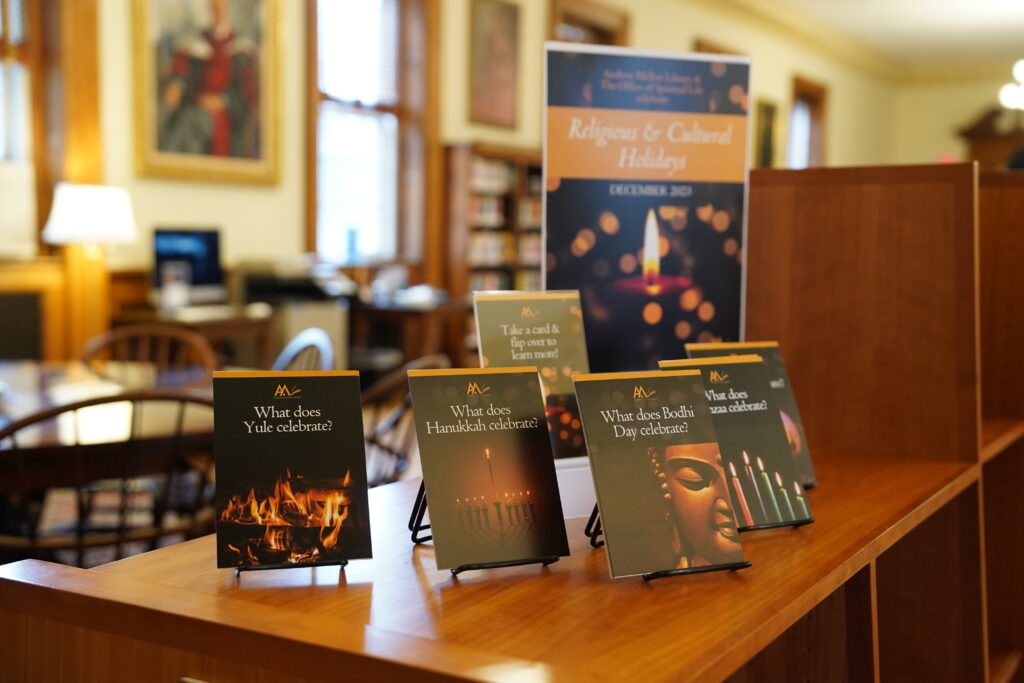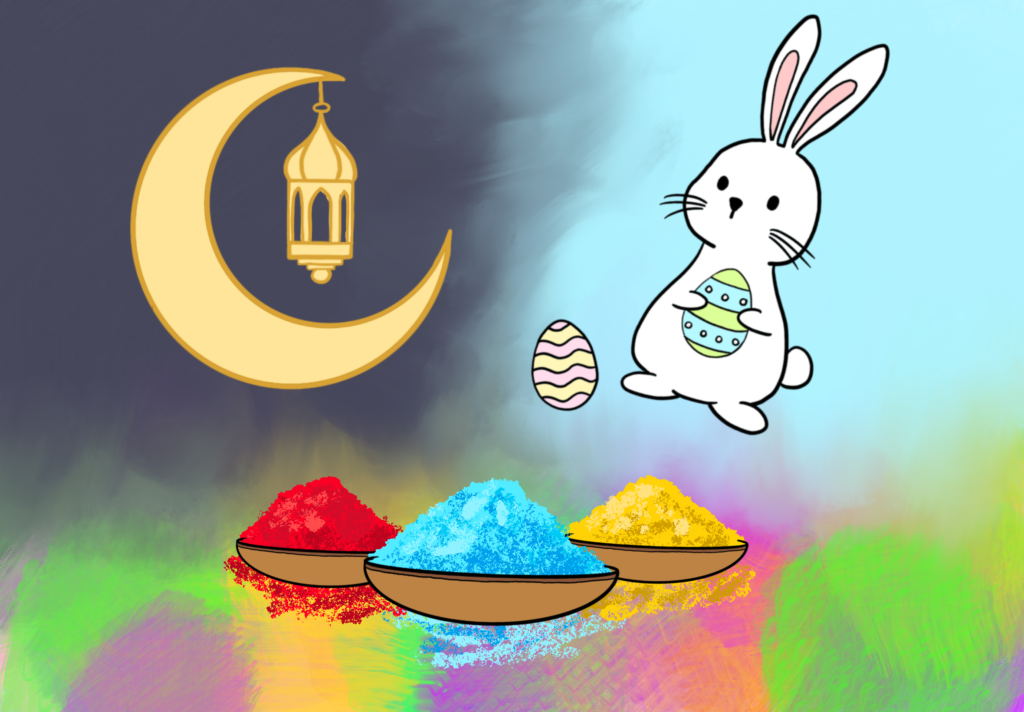
Books on religious and cultural holidays displayed in the library.
By Eliana Li ’26
“A library should never be a stagnant repository of books of information. A library should be the living, breathing, enmeshed part of the community,” said Ms. Sam Nelson, the Assistant Director of the Andrew Mellon Library. Guided by this vision, the team at Choate’s library works together with clubs and community members every month to curate displays that not only offer a rich selection of books but also serve as platforms to highlight different social and cultural issues.
This year, in October and November, the library team specifically focused on the censorship of Banned Books and the importance of preserving Native American Heritage.
In partnership with the American Library Association, libraries across the nation recognize Banned Books Week every year in October to celebrate the freedom to read and take a stand against censorship.
“The library team deeply values fighting against censorship,” Ms. Nelson said. “We believe in everybody’s freedom to read and freedom to information. By highlighting books that have been challenged or censored, not only do we bring attention to these issues, but we encourage readers to read them for themselves and to make their own conclusions about these titles.”
The library’s Banned Books Week display put several titles whose places on the library bookshelves have been repeatedly challenged throughout the years into the spotlight. Some of these books include the children’s poetry book, Where the Sidewalk Ends, by Shel Silverstein, I Know Why the Caged Bird Sings by Maya Angelou, and the Harry Potter series by J.K. Rowling. The library team’s efforts to showcase these stories served as a reminder of the ongoing struggle against attempts to restrict access to thought-provoking literature.
The library also celebrates National Native American Heritage Month each November, offering displays as a tribute to the rich ancestry and traditions of indigenous communities.
The library team “made an attempt to find stories told by Native authors about their indigenous stories, including a wide range of platforms and mediums that highlight the extensive range of Native experiences,” Ms. Nelson said.
Highlighted titles ranged from poetry to nonfiction to children’s books and included The Sentence and The Roundhouse by Louise Erdrich, We Are Water Protectors by Carole Lindstrom, and Fry Bread: A Native American Family Story by Kevin Noble Maillard. These books showcase not only the rich history of Native American culture but also the struggles that the group faces in light of the current and changing policies of society.
“The hope is that students not only will see themselves reflected in the stories and learn more about various topics, but also that they will be able to see a new perspective and new ways of thinking,” Ms. Nelson said. “These books can help us develop a new sense of empathy and awareness for what the world can look like beyond ourselves.”


